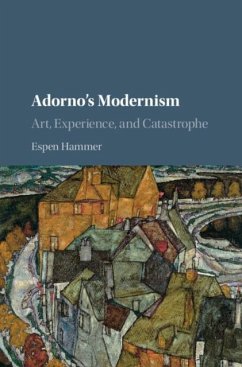Theodor W. Adorno's aesthetics has dominated discussions about art and aesthetic modernism since World War II, and continues to inform contemporary theorizing. Situating Adorno's aesthetic theory in the context of post-Kantian European philosophy, Espen Hammer explores Adorno's critical view of art as engaged in reconsidering fundamental features of our relation to nature and reality. His book is structured around what Adorno regarded as the contemporary aesthetician's overarching task: to achieve a vision of the fate of art in the modern world, while demonstrating its unique cognitive potential. Hammer offers a lively examination of Adorno's work through the central problem of what full human self-actualization would require, and also discusses the wider philosophical significance of aesthetic modernism. This book will be a valuable resource for scholars and students of social philosophy, art, and aesthetics.
Dieser Download kann aus rechtlichen Gründen nur mit Rechnungsadresse in A, B, BG, CY, CZ, D, DK, EW, E, FIN, F, GR, HR, H, IRL, I, LT, L, LR, M, NL, PL, P, R, S, SLO, SK ausgeliefert werden.

